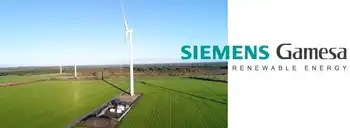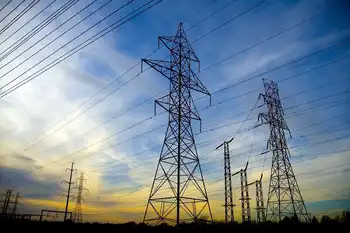Solar cuts could darken Liberal reelection hopes
By Toronto Star
High Voltage Maintenance Training Online
Our customized live online or in‑person group training can be delivered to your staff at your location.

- Live Online
- 12 hours Instructor-led
- Group Training Available
Government insiders warn as many as a dozen Liberal seats could be in play due to what is shaping up as an urban-rural schism — and that could mean the difference between winning and losing the October 2011 election.
At issue is a policy change quietly announced on July 2, in the middle of an extended Canada Day long weekend, when the Ontario Power Authority OPA disclosed that a program for small producers of solar electricity had “vastly surpassed expectations” with 16,000 applicants, so the rate being paid would have to be slashed.
Most of the 16,000 applicants to the “microFIT” scheme are farmers hoping to cash in by building ground-mounted solar projects in their fields and selling electricity to the grid for a subsidized price of 80.2 cents per kilowatt hour. That’s 20 times the price paid for nuclear power.
But concerned the subsidy could cost Ontario electricity ratepayers an additional $1 billion over 20 years, the OPA now says only 58.8 cents per kilowatt hour can be paid for such power — while still forking out 80.2 cents for electricity generated from the roof-mounted solar panels more common in urban areas.
One Grit MPP said would-be solar entrepreneurs are calling MPPs at their homes, day and night, to vent their furor at what they see as a betrayal of a promise.
“We’re just getting the s--- beaten out of us,” complained another.
During a recent Liberal caucus meeting, MPPs — who spoke to the Star on condition of anonymity because the session was in camera — pleaded with McGuinty to reconsider.
“This is a slap in the face to rural Ontario,” fumed one member.
“You’re just going to have to wear this,” the premier told his stunned caucus in the tense, three-hour, closed-door session, according to eyewitnesses.
“And I’m going to have to wear it, too,” McGuinty quickly added, after apparently reading the dismay on MPPs’ faces.
Energy Minister Brad Duguid, who sources say faced scathing questions about microFIT from his fellow Grit MPPs, said it is “ridiculous” to suggest the government favours urban entrepreneurs over rural generators.
“I recognize that they’re disappointed because they the solar producers were going to make a whack of dough,” Duguid said, insisting solar panels in fields are much cheaper to install than roof-mounted equipment.
The minister emphasized the rural producers will still make a healthy 11 per cent rate of return on their investment at 58.8 cents per kilowatt hour, compared to an “exorbitant” 25 per cent to 30 per cent at 80.2 cents.
“There’s close to five million consumers of electricity throughout the province that are being asked to foot the bill,” he noted.
However, the Liberal government may end up paying a hefty price, too.
In a two-hour conference call the OPA held Thursday to discuss the change with solar power investors, caller after caller complained they felt “betrayed” and “outraged” by the move and urged others to “bombard” their MPPs because the government “lied to” and “misled” them.
Hybrid Eco WattsÂ’ Ralph Stephen, a solar equipment dealer in Thorndale, near London, said farmers spend an average of about $100,000 to buy the ground-mounted gear.
Stephen said it’s “poppycock” to say urban, roof-mounted systems are much more expensive, arguing the 80.2 cent price should be paid to everyone.
“The rural community does not have a big, powerful vote anymore, so I firmly believe rural Ontario was sacrificed,” he said.
Progressive Conservative MPP John Yakabuski Renfrew-Nipissing-Pembroke, who opposes the microFIT program because he believes it is unsustainable, said people “feel like they’ve had the rug pulled from under their feet.”
“The government is now trying to cover its incompetence by changing the rules in the middle of the game,” said Yakabuski.











